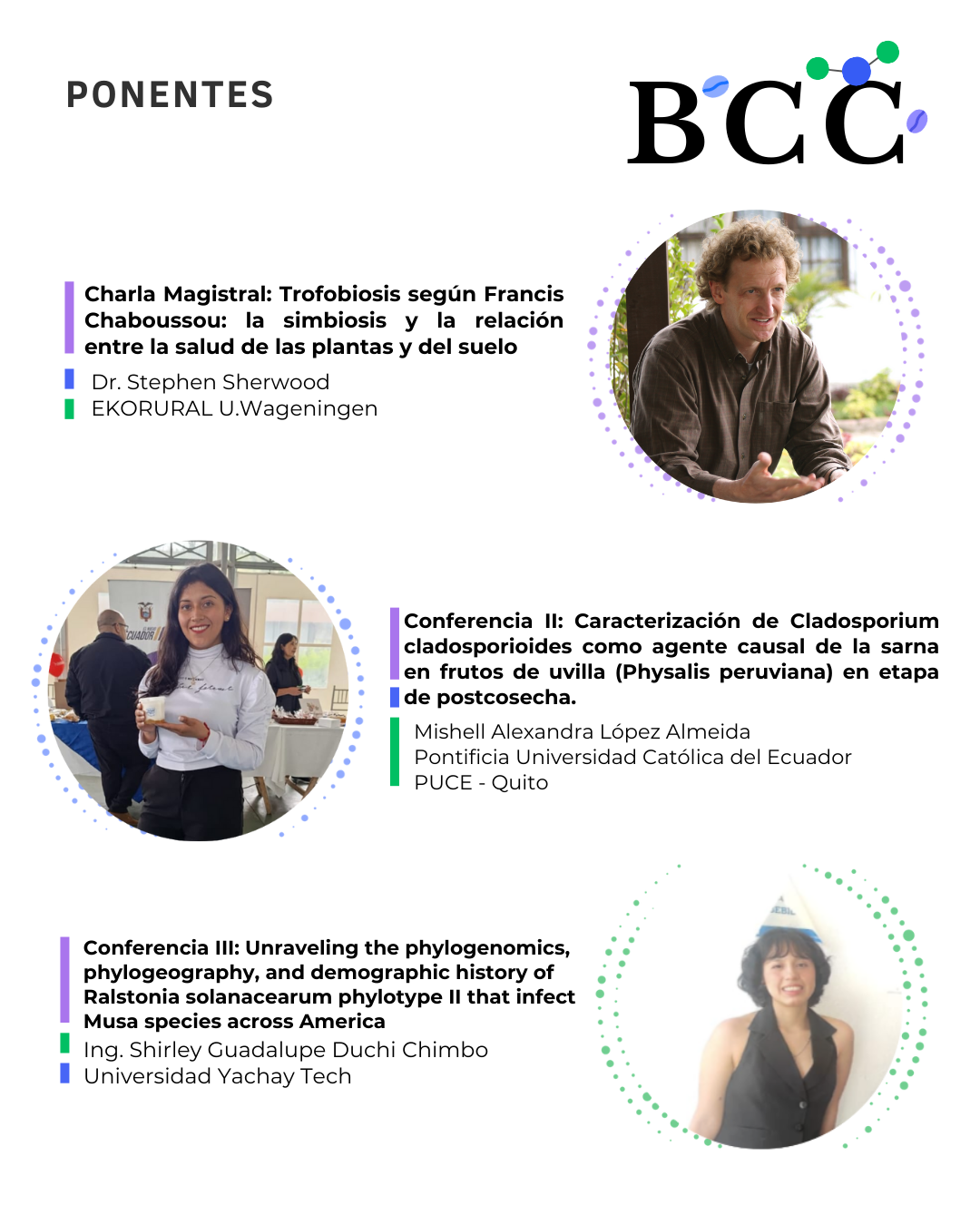Biocafé con Ciencia - Session XX
Biocafé con Ciencia is a series of scientific conferences promoted by the EMBS-IEEE UTN Technical Chapter, the Biotechnology Research Club (CIB-UTN), and the Biotechnology Engineering program at the Universidad Técnica del Norte. Since its creation, this space has sought to bring science closer to society through dynamic, participatory, and inclusive meetings, creating connections between researchers, students, faculty, and the community.
Date and Time
Location
Hosts
Registration
- Date: 23 May 2025
- Time: 03:00 PM UTC to 06:00 PM UTC
-
 Add Event to Calendar
Add Event to Calendar
- Contact Event Host
- Co-sponsored by Club de Investigaciones Biotecnológicas - UTN ; eCIER ; Biotechnology Engineering - UTN
- Survey: Fill out the survey
Speakers
Stephen of Wageningen University
Francis Chaboussou’s trophobiosis — symbiosis and the relationship between plant and soil health.
Francis Chaboussou’s theory of trophobiosis, introduced in his 1985 book Healthy Crops: A New Agricultural Revolution, presents a paradigm shift in understanding plant health and pest resistance. The theory posits that pests are more likely to attack plants with an excess of soluble nutrients—such as amino acids and sugars—often resulting from the use of chemical fertilizers and pesticides. These substances can disrupt protein synthesis in plants, leading to nutrient imbalances that make them more susceptible to pests and diseases .
Chaboussou argued that chemical inputs not only fail to protect crops but may actually weaken them, creating a cycle of dependency on pesticides. He emphasized that healthy plants, grown in balanced ecosystems with proper soil health and nutrition, are naturally more resistant to pests. This perspective supports organic and agroecological farming practices, which focus on holistic plant and soil health rather than chemical interventions .
While Chaboussou’s work has not been widely recognized in mainstream agriculture, it has influenced organic farming communities, particularly in Brazil, where agronomists like Maria José Guazelli have applied his principles to support sustainable agriculture .
The theory of trophobiosis underscores the importance of understanding the intricate relationships between plants, soil, and pests, advocating for agricultural practices that enhance natural plant resilience through ecosystem balance.
Biography:
Steve is a lifelong farmer who grew up in the Philadelphia area (United States). He has degrees in agriculture, adult education, and the sociology of change. Since 1986, Steve moved to Latin America, where he has worked with farmer-to-farmer movements in Nicaragua, Honduras, Guatemala, Bolivia, Perú, and Ecuador. Steve and colleagues created Honduras’ Asociación Nacional para el Fomento de la Agroecología (ANAFAE) and Ecuador’s Colectivo Agroecológico. In 1998, Steve and his wife, Myriam Paredes, began Granja Urkuwayku -- a family-operated organic farm and CSA, located at Volcán Ilaló in the Los Chillos Valley, near Quito. Steve co-founded EkoRural and Groundswell International – organizations uniquely dedicated to knowledge-based, people-centered rural development. He is an occasional lecturer and researcher in Knowledge, Technology, and Development at Wageningen University (Netherlands). Drawing on the experience at Urkuwayku, Steve is part of a network seeking to help farmers pioneer the science and art of ecological soil management and become central actors in climate change mitigation. For more information, see: www.urkuwayku.com
Email:
Address:Philadelphia, Pennsylvania, United States


